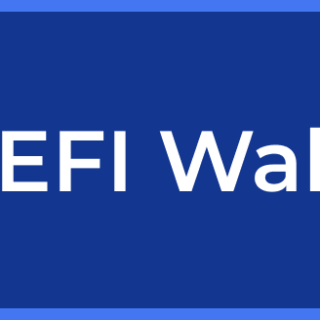Academy > Supported Blockchains & Applications
XDEFI Wallet supports Ethereum (ETH)

What is Ethereum?
Ethereum is a decentralized, open-source blockchain platform that enables developers to build and deploy decentralized applications (dApps). It was created by Vitalik Buterin in 2015, and it has since become one of the world’s most popular and widely used blockchain platforms. Ethereum is built on a public blockchain, meaning anyone can participate in the network and contribute to its growth and development. The platform uses a proof-of-work (PoW) consensus algorithm to validate transactions and secure the network. However, it is in the process of transitioning to a proof-of-stake (PoS) consensus algorithm with the upcoming Ethereum 2.0 upgrade. One of the key features of Ethereum is its support for smart contracts, which are self-executing contracts with the terms of the agreement between buyer and seller being directly written into code.
Smart contracts can be used for a variety of applications, including decentralized finance (DeFi), gaming, supply chain management, and more. In addition to smart contracts, Ethereum also supports the creation of custom digital assets, known as ERC-20 tokens, which can be used for a variety of purposes, such as rewards, fundraising, and more.
Ethereum is well-known for supporting non-fungible tokens (NFTs), unique digital assets that can be bought, sold, and traded on the blockchain. NFTs are often used to represent digital art, collectibles, and other unique items that have value and scarcity. The most popular standard for creating NFTs on Ethereum is the ERC-721 standard, introduced in 2017. ERC-721 allows developers to create unique, non-interchangeable tokens that can be owned, transferred, and verified on the Ethereum blockchain. This has enabled the creation of a wide range of NFT-based applications and use cases, such as digital art marketplaces, gaming assets, and more.
What are the core features of Ethereum?
- Smart Contracts: Ethereum enables the creation of smart contracts, self-executing contracts with the terms of the agreement between buyer and seller being directly written into lines of code. This eliminates the need for intermediaries and makes the contract immutable and transparent.
- Decentralized Applications (dApps): Ethereum provides a platform for developers to build and deploy decentralized applications (dApps) on the blockchain. These dApps can be used for a variety of purposes, from gaming to finance to social networking.
- Ethereum Virtual Machine (EVM): The Ethereum Virtual Machine (EVM) is a runtime environment for smart contracts in Ethereum. It is a virtual machine that executes the code of the smart contracts in a sandboxed environment, ensuring security and immutability.
- Ethereum Improvement Proposals (EIPs): Ethereum Improvement Proposals (EIPs) are proposals for changes and improvements to the Ethereum protocol. These proposals are discussed and voted on by the Ethereum community and, if accepted, are implemented on the blockchain.
- Ether (ETH): Ether is the native cryptocurrency of the Ethereum blockchain. It is used to pay for transaction fees and as a store of value and medium of exchange.
- Proof of Stake (PoS): Ethereum is currently transitioning from a Proof of Work (PoW) consensus algorithm to a Proof of Stake (PoS) consensus algorithm. PoS is more energy-efficient than PoW and allows for greater decentralization and security on the network.
- Interoperability: Ethereum is designed to be interoperable with other blockchains and protocols, allowing for seamless communication and transfer of value between different networks. This enables greater collaboration and innovation in the blockchain space.
What is the native token of Ethereum?
The native token of the Ethereum network is called Ether, which is commonly represented by the symbol ETH. Ether is used as a digital currency for peer-to-peer transactions and to pay transaction fees on the Ethereum network. However, Ether is also used for a range of other purposes beyond just payments. For example, one of the key features of the Ethereum network is its ability to support the development and deployment of smart contracts, which are self-executing contracts with the terms of the agreement between buyer and seller being directly written into code. Ether is used as the currency to pay for the execution of these smart contracts, which can be used for a variety of applications, including decentralized finance (DeFi), gaming, and supply chain management, among others.

